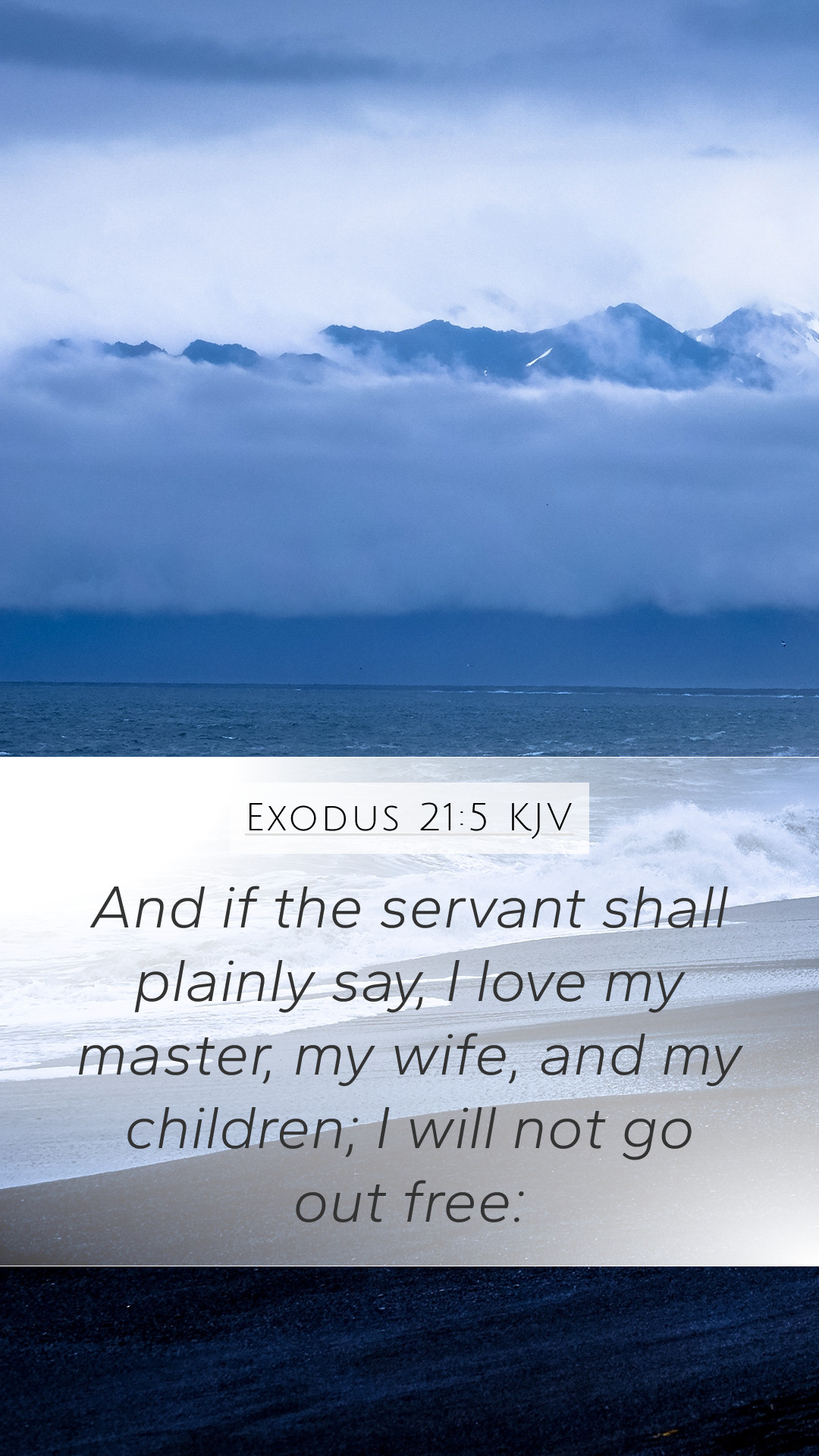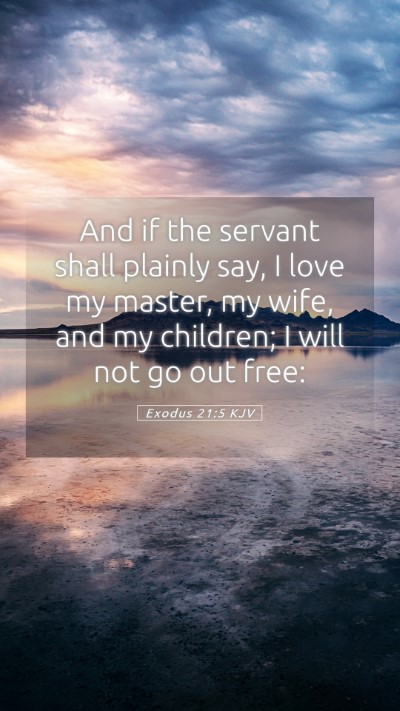Exodus 21:5 - Understanding the Meaning of this Bible Verse
Bible Verse: Exodus 21:5
Verse: "But if the servant shall plainly say, I love my master, my wife, and my children; I will not go out free;"
Overview
This verse deals with the regulations concerning the treatment of servants in ancient Israel. It highlights the concept of voluntary servitude and the commitments that accompany such a choice. Understanding this verse involves looking at the nature of servitude, love, and commitment within the covenant community.
Context and Historical Background
In the cultural context of Ancient Israel, slavery was different from modern conceptions. Servants, often referred to as “slaves,” had specific rights and could choose to remain with their master after their term was completed. This legislative aspect was intended to maintain humane practices in the treatment of servants.
Commentary Insights
- Matthew Henry: Henry observes that this passage showcases the love and loyalty a servant may have towards his master, recognizing the bonds formed through kindness and care. The decision to remain a servant is seen as a testament to the good relationship between the master and servant.
- Albert Barnes: Barnes emphasizes the voluntary nature of servitude here. A servant's choice to stay indicates genuine affection and commitment, suggesting that the service rendered is not merely for survival but springs from loyalty and love.
- Adam Clarke: Clarke notes the implications of this verse in illustrating the deeper meanings of freedom. True freedom might not always be physical; a servant’s choice to remain could be viewed as a spiritual alignment with his master’s family and household, prioritizing relational bonds over mere legal status.
Thematic Analysis
This verse connects with several broader themes in Scripture, including:
- The Nature of Loyalty: The servant's declaration reflects a profound loyalty that underscores the bonds formed in service.
- Love and Commitment: The choice made by the servant emphasizes love as a fundamental principle, demonstrating how relationships can transcend mere contract obligations.
- Freedom and Choice: A critical element of this passage is the notion of freedom; the servant's choice is indicative of a deeper understanding of freedom in loyalty and love, rather than a mere escape from physical bondage.
Application of This Verse
Exodus 21:5 can be applied to various themes in our daily lives:
- Understanding the importance of nurturing relationships in our lives, be they professional or personal.
- Recognizing that true commitment often comes from love and loyalty rather than obligation.
- Reflecting on the choice to commit to roles in our lives, whether in work or family, and doing so with dedication and love.
Related Bible Cross References
- Isaiah 56:6-7 - Emphasizes the inclusion and love for servants in the Lord’s house.
- Deuteronomy 15:16-17 - Discusses the circumstances under which a servant may choose to serve for life.
- Galatians 5:13 - Relates freedom in Christ to the commitment of serving one another in love.
Conclusion
Exodus 21:5 serves as a profound illustration of love and commitment within the framework of servitude. By analyzing and interpreting this verse, we gain insight into how relationships, choices, and loyalty shape our understanding of freedom and love in the biblical context. Through careful study and application, we can derive valuable lessons for our lives today.
SEO Keywords:
- Bible verse meanings
- Bible verse interpretations
- Bible verse understanding
- Bible verse explanations
- Bible study insights
- Understanding Scripture
- Online Bible study


